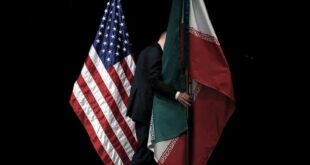In public, Afghanistan has played down US and British allegations that Iran is feeding weapons to Taliban insurgents, but in private, officials here say the charges are true — and worrying.
Â
A serious debate is under way in President Hamid Karzai’s administration about Iranian support to both the Taliban and emerging opposition political parties, several officials told AFP.
The government is in a difficult position: it is unwilling to sour relations with another neighbour or become involved in the heated US-Iran dispute, but it is also afraid Afghanistan will again become a battleground for more powerful nations.
US Defence Secretary Robert Gates said this month that given the large number of weapons coming into Afghanistan from Iran, it was hard to believe “that it’s taking place without the knowledge of the Iranian government.”
The charge is denied by Tehran as “100 percent lies.”
“We are seriously following the reports with concern,” said Afghan foreign ministry spokesman Sultan Ahmad Baheen. “We want to continue our friendly relations with Iran.”
Karzai has said there is no proof the Iranian-marked weapons are provided by Tehran.
“Iran and Afghanistan have never been as friendly as they are today,” he said earlier this month.
But a defence ministry general said the government had “evidence”, including documents, to prove the weapons were coming into the country for the Taliban, with Tehran’s knowledge.
The official, who asked not to be identified because of the sensitivity of the matter, would not give further details.
Shiite Iran, a staunch opponent of the Sunni Taliban movement’s 1996-2001 regime in Afghanistan, is playing a “three-pronged” game, he said.
“Iran’s foreign ministry is staging a friendly-relations show with Afghanistan, supporting the Afghan government,” he told AFP.
Meanwhile, “Its religious armed forces and its intelligence is supporting political opponents of the government and, separately, helping Taliban.”
The aim is in part to put pressure on the United States — which is leading the drive to shut down Iran’s nuclear programme — by threatening the 27,000 US troops in Afghanistan fighting the Taliban.
“Iran is giving the option to the US that if it does not give Iran a green light on the nuclear issue and its role in the region, Iran can turn Afghanistan into a second Iraq or Vietnam for them,” the general said.
Another military general who asked not to be named agreed, saying, “Iran is baring its teeth to the US at this stage” — but is also capable of destabilising Afghanistan.
Afghanistan was the battleground in the 1980s of a “proxy war” between the United States and Russia — a 10-year conflict that led to a ruinous civil war between CIA- and Pakistan-armed Islamist factions.
“Now, we must not fall prey to the US and nuclear Iran’s war,” the second general said.
Ahmad Behzad, a lawmaker from the western province of Herat on the border with Iran, said the weapons sent “a mere message for the targeted rivals telling them of its capabilities, suggesting that Iran can turn Afghanistan into Iraq if they want to.”
This is part of a push to get US forces off Tehran’s doorstep for multiple reasons, he said.
Iran sees the US presence in Afghanistan as a threat to its national security, despite Kabul’s repeated pledges it would not allow its soil to be used for attacks against its neighbours.
The Islamic republic also believes it is a defender of the Muslim faith against US President George W. Bush’s “crusade,” said Behzad.
And it could be trying to destabilise Afghanistan because of a planned multi-billion-dollar gas pipeline from Central Asia to the sea that could transit through Afghanistan — or Iran.
“Iran is boosting the tribal, ethnic and sectarian religious rivalry in Afghanistan to keep the country weak, insecure and to make the US and NATO fail here,” Behzad said.
For political analyst and one-time anti-Soviet fighter Waheed Mujda, Iran is trying to make a statement with the weapons, as it could buy Russian weapons on the black market and arm the rebels “without anybody pointing fingers at them”.
Iran and Afghanistan have deep ties. They speak the same language, share the same religion and a similar culture. Iran hosted millions of Afghan refugees during their homeland’s years of war.
Tehran is extending its influence in Herat by promoting clerics who preach a pro-Iranian position and stir up feelings against foreign forces, and by building libraries that push its ideology, Behzad charged.
Iran’s spy agency is active here and officials have visited the country to try to incite rebellion, said a member of Afghanistan’s security council.
Police in the west of the country, which has seen a spike in Taliban-linked violence this year, say they know insurgents are getting support from across the border. There have also been reports of armed men arriving in Afghanistan from across the border.
In April, Karzai said information suggested “foreign embassies” were involved in the formation of a potentially powerful new opposition party.
But he has been careful not to annoy Iran, as his ties with Pakistan are in tatters amid recriminations about support for Taliban and Al-Qaeda fighters.
“The president is in a very difficult position,” Jean MacKenzie, country director of the Institute for War and Peace, told AFP.
“He is isolated both within and without the country. Eastwards he has problems with Pakistan. Certainly he does not want to make more enemies.”
 Eurasia Press & News
Eurasia Press & News


